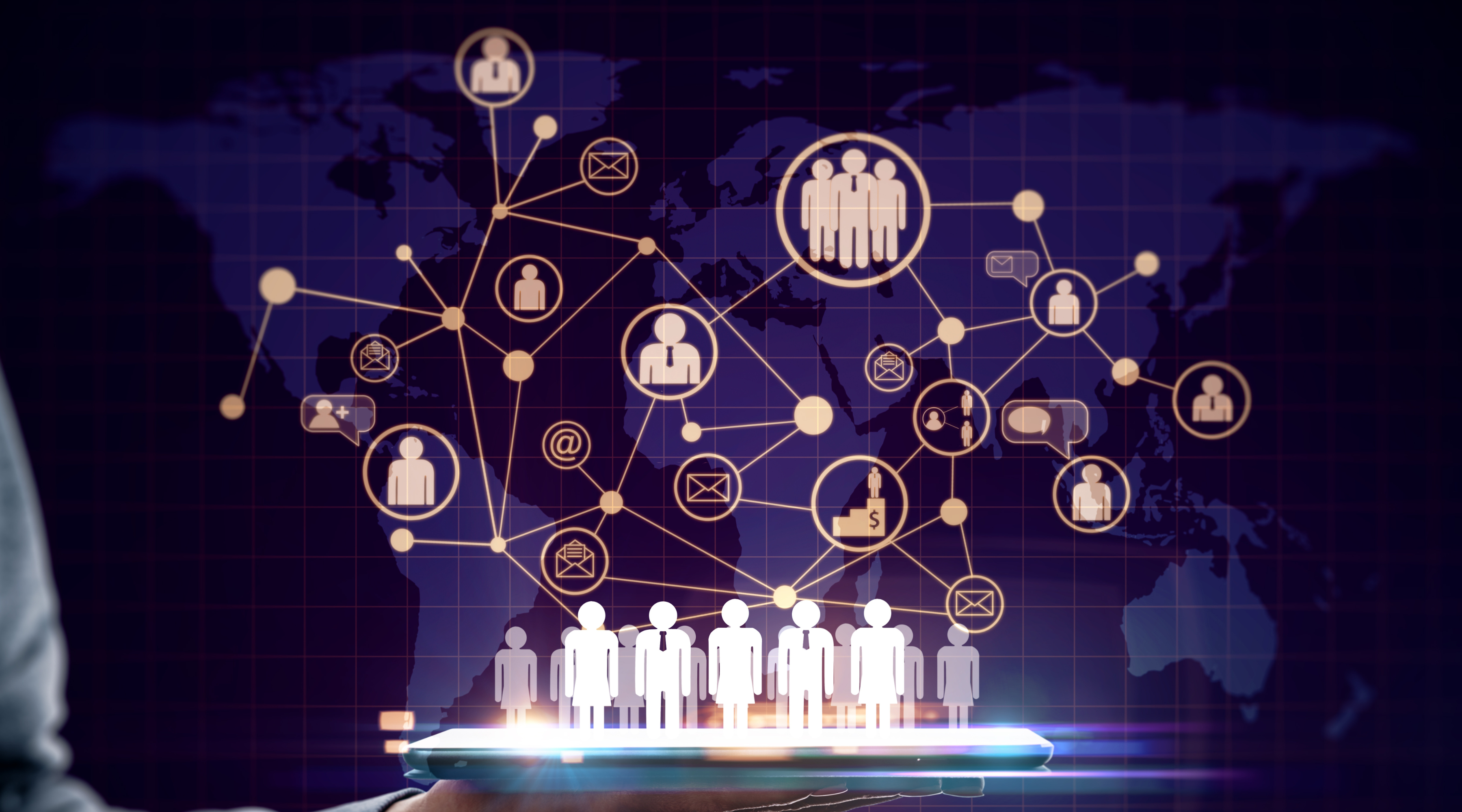


Staying ahead of the curve is essential for fostering a healthy and productive workplace. As we step into 2024, several HR trends are shaping the way organizations approach talent management, employee engagement, and overall workplace dynamics. HR trends have evolved over the years, shaping the way workplaces are run. The early 2010s saw technology integration with the automation of HR processes, the introduction of HRIS, and the use of data-analytics for decision making. From 2010-2020 we saw a focus on enhancing the overall employee experience, including onboarding, training, and well-being programs. The impact of the COVID-19 pandemic accelerated the adoption of remote work, challenging traditional workplace structures.
Now let’s look at some current and future HR trends that will collectively shape the modern workplace – promoting flexibility, inclusivity, and adaptability in the face of ongoing technological and societal changes.
The COVID-19 pandemic acted as a catalyst for the widespread adoption of remote work, transforming it from a flexible perk to a mainstream working model. The trend of remote work originated as a necessity during the pandemic but has continued due to its proven benefits for both employers and employees. The shift toward remote work is likely to persist in 2024 and beyond as organizations recognize its positive impact on productivity, employee satisfaction, and talent acquisition.
This trend is rooted in the realization that remote work not only supports business continuity but also enhances employee satisfaction and work-life balance. Stanford Business Professor Nicholas Bloom says requiring employees to be in the office is an outdated work tradition, and such inflexibility ignores today’s sophisticated communication methods. Bloom also reported a 13% improvement in performance from employees working from home. As employees seek greater autonomy over their work environment, organizations are re-evaluating traditional notions of productivity tied to physical presence. Virtual onboarding processes and team-building activities are being refined to create a sense of belonging among remote teams.
As we progress into 2024, the remote work revolution is not just about adapting to change but harnessing its potential for increased productivity, expanded talent pools, and improved employee satisfaction.
In the coming year, companies are expected to invest more in technologies that facilitate seamless remote collaboration, virtual team-building activities, and mental health support for remote employees. To stay competitive, organizations must prioritize building a robust remote work infrastructure that fosters communication, collaboration, and a healthy work-life balance.
Artificial Intelligence (AI) has been steadily making its way into HR functions, streamlining processes, and enhancing decision-making. 23% of leaders are formally looking for ways to deploy AI. The origins of this trend can be traced back to the need for more efficient recruitment, employee onboarding, and performance management processes. In 2024, AI in HR is expected to evolve further – Gianna Driver, Chief Human Resources Officer at Exabeam says, “AI enables us to do our jobs better, so let AI do what the technology can do, and focus on being human and bringing empathy and other human-centric skills to HR.”
The integration of AI in HR has revolutionized traditional HR practices. AI-powered tools and algorithms are now playing a pivotal role in talent acquisition, employee engagement, and workforce management. These technologies enable HR professionals to streamline the recruitment process by identifying top candidates and contribute to employee development and retention through personalized learning programs and sentiment analysis tools that gauge employee satisfaction.
Machine learning algorithms are helping HR teams make data-driven decisions, enabling predictive analytics for workforce planning and identifying trends in employee behavior. Recruitment platforms are leveraging AI algorithms to analyze resumes, conduct initial candidate screenings, and even predict employee turnover. Chatbots powered by AI are being deployed for answering HR-related queries, freeing up HR professionals to focus on more strategic tasks. As we progress, organizations will need to embrace AI tools to stay competitive, enhance employee experiences, and drive data-driven decision-making. The implementation of AI in HR is breaking down biases in hiring processes, fostering diversity and inclusivity.
The increasing awareness of the importance of employee well-being is another trend that gained momentum in response to the challenges posed by the pandemic. Organizations are recognizing that employee well-being is directly linked to productivity, job satisfaction, and overall workplace culture. Employee well-being has become a cornerstone of HR strategy, reflecting an understanding that a healthy, engaged workforce is essential for organizational success. The genesis of this trend lies in the realization that employees are not merely resources but individuals with physical, mental, and emotional needs. The pandemic highlighted the importance of well-being initiatives, with organizations recognizing the direct link between employee well-being and productivity. Employee Assistance Programs (EAPs), mental health days, and flexible working arrangements are gaining prominence. HR professionals are championing a holistic approach that goes beyond traditional benefits, addressing the broader spectrum of well-being.
In 2024, employee well-being initiatives are expected to become more comprehensive, encompassing physical, mental, and social well-being. Employers will invest in wellness programs, mental health resources, and flexible work arrangements to support their employees. Organizations are also leveraging technology, like Sodales’ HR Case Management module to track and analyze employee well-being data, providing valuable insights into the effectiveness of well-being programs. By investing in the well-being of their workforce, companies not only enhance employee satisfaction but also foster a positive workplace culture that attracts and retains top talent.
Deloitte reported in 2019 that 54% of all employees will require significant reskilling and upskilling in just three years. The rapid pace of technological advancements has led to a growing demand for new skills in the workplace. To address this, organizations are focusing on upskilling and reskilling initiatives to ensure that their employees remain relevant in the face of evolving job requirements. The origins of this trend can be traced to the need for a skilled workforce capable of navigating the digital age.
In Workday’s whitepaper “Strategies for your future-forward workforce,” they highlighted from Deloitte’s report that 84% of HR leaders are increasing their investment in reskilling programs, with 53% saying that they would increase this budget by 6% or more. In 2024, organizations will continue to invest in training programs and partnerships with educational institutions to upskill their employees. The emphasis will be on developing skills such as digital literacy, data analysis, and problem-solving. HR professionals will play a pivotal role in identifying skill gaps, designing training programs, and fostering a culture of continuous learning.
The push for diversity, equity, and inclusion in the workplace has been gaining traction in recent years, and 2024 is expected to see a further acceleration of this trend. The origins of this movement can be attributed to a growing recognition of the benefits that diverse and inclusive workplaces bring, including increased innovation, better decision-making, and improved employee engagement. In 2024, we see that DE&I initiatives have evolved from being corporate buzzwords to becoming integral components of HR strategies. Organizations are not only focusing on diversifying their workforce but also on creating inclusive cultures that empower all employees. DE&I training programs are also gaining traction, fostering understanding and empathy among team members. HR departments are also implementing blind recruitment processes and utilizing AI to mitigate unconscious biases in hiring decisions.
DE&I is not just a compliance checkbox; it’s a strategic imperative. Regina Ross, Chief People Officer at Khan Academy says, “while HR teams may be tempted to move DEIB down the priority list, the talent they are seeking to attract and maintain are keeping it front and center in their expectations.” Workplace research backs this up, finding that workers want better alignment between their employers’ values and their own. Organizations are setting clear diversity goals, measuring progress, and holding leadership accountable for driving inclusive practices. By embracing diversity, equity, and inclusion, companies are positioning themselves as employers of choice and building stronger, more resilient teams.
As we step into 2024, the HR landscape continues to evolve, shaped by the lessons learned during the challenges of the past. The trends discussed – remote work, AI in HR, employee well-being, upskilling, and DE&I – are not isolated concepts but interconnected elements that contribute to building a resilient and dynamic workplace.
Embracing these trends requires a proactive approach from HR professionals and organizational leaders. By investing in the necessary technology, fostering a culture of inclusivity, and prioritizing employee well-being, businesses across all industries can create a workplace that attracts top talent, retains valuable employees, and adapts to the ever-changing demands of the future. As we navigate the complexities of the modern workplace, these trends serve as guideposts, pointing the way toward a more productive, innovative, and employee-centric future.
To learn how Sodales for Enterprise Health, Safety and Employee Relations can help take your HR processes to the next level, book your free industry-specific demo here.